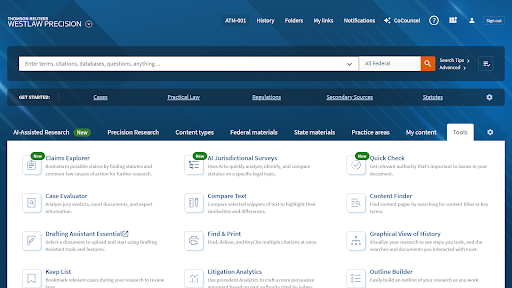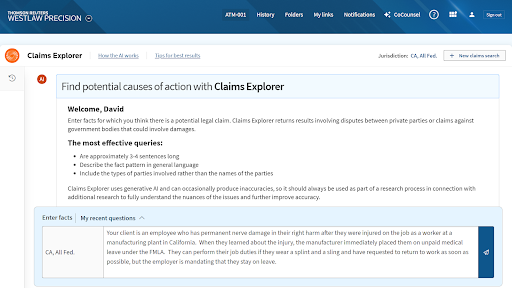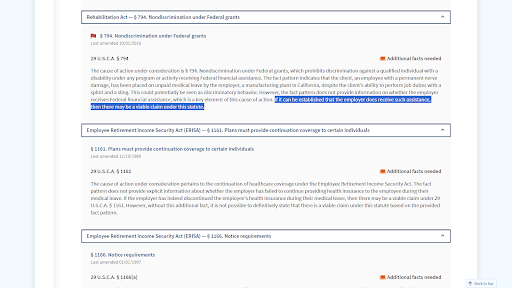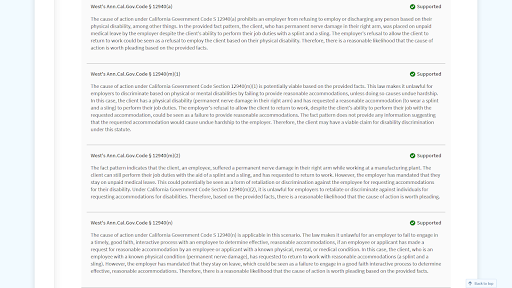Local
Authorities
and
Central
Government
:
The
View
From
the
Constitutional
Court
Disclosures
of
mismanagement
in
the
governance
of
Harare,
and
attempts
by
the
Minister
of
Local
Government
to
interfere
in
the
City’s
affairs,
make
it
topical
to
look
at
what
the
Constitution
says
about
the
relationship
between
local
authorities
and
central
government,
and
how
the
Constitutional
Court
has
interpreted
the
Constitution
in
this
regard.
The
Constitution
and
Local
Authorities
Section
3
of
the
Constitution
declares
that
devolution
and
decentralisation
of
governmental
powers
are
principles of
good
governance,
and
good
governance
is
itself
declared
by
section
3
of
the
Constitution
to
be
a
foundational
value of
Zimbabwe.
More
specifically,
Chapter
14
of
the
Constitution
deals
with
provincial
and
local
government,
emphasising
the
importance
of
devolving
powers
and
responsibilities.
Thus
section
264(1)
says:
“Wherever
appropriate,
governmental
powers
and
responsibilities
must
be
devolved
to
…
local
authorities
which
are
competent
to
carry
out
those
responsibilities
efficiently
and
effectively.”
Subsection
(2)
of
the
section
explains
the
reasons
for
devolving
powers
and
responsibilities:
“(a)
to
give
powers
of
local
governance
to
the
people
and
enhance
their
participation
in
making
decisions
affecting
them;
(b)
to
promote
democratic,
effective,
transparent,
accountable
and
coherent
government
in
Zimbabwe;
(c)
to
preserve
and
foster
the
peace,
national
unity
and
indivisibility
of
Zimbabwe;
(d)
to
recognise
the
right
of
communities
to
manage
their
own
affairs
and
to
further
their
development;
…”
Section
276(1)
goes
on
to
say:
“Subject
to
this
Constitution
and
any
Act
of
Parliament,
a
local
authority
has
the
right
to
govern,
on
its
own
initiative,
the
local
affairs
of
the
people
within
the
area
for
which
it
has
been
established,
and
has
all
the
powers
necessary
for
it
to
do
so.”
There
has
to
be
a
balance
between
the
powers
of
central
government
and
those
of
local
authorities.
While
local
authorities
must
be
allowed
to
govern
local
affairs
on
their
own
initiative,
they
cannot
be
given
complete
autonomy.
The
central
government
has
a
duty
to
govern
the
country
as
a
whole,
and
its
laws
must
be
applicable
to
everyone
wherever
they
live.
Local
authorities
cannot
have
such
complete
autonomy
that
they
override
national
laws.
On
the
other
hand,
laws
made
by
the
central
government
–
Acts
of
Parliament
–
must
not
unduly
restrict
the
powers
of
local
authorities
to
regulate
their
local
affairs.
As
we
have
said,
there
has
to
be
a
balance.
The
Urban
Councils
Act
The
Urban
Councils
Act,
as
its
name
indicates,
regulates
the
affairs
of
urban
local
authorities.
It
long
predates
the
Constitution
and
pays
little
regard
for
local
autonomy
–
so
little
regard
that
it
gives
the
Minister
of
Local
Government
very
wide
powers
to
control
the
activities
of
urban
councils.
For
example:
-
Under
section
4A
the
Minister
can
appoint
up
to
one-third
of
the
councillors
of
any
local
authority,
who
hold
office
at
the
Minister’s
pleasure.
[section
274(2)
of
the
Constitution,
on
the
other
hand,
says
that
councillors
are
to
be
elected
by
voters
in
the
areas
concerned].
-
Under
section
206
of
the
Act
the
Minister
can
direct
councils
to
establish
townships
and,
if
they
fail
to
do
so,
he
or
she
can
establish
townships
on
their
behalf.
-
The
Minister
has
a
veto
over
councils’
by-laws;
that
is
to
say,
the
Minister
must
approve
all
their
by-laws
and
under
section
232
he
or
she
can
make
by-laws
on
their
behalf.
-
Under
section
313
the
Minister
can
give
councils
policy
directives
“in
the
national
interest”
and
councils
must
comply
with
them.
-
Under
section
314
the
Minister
can
direct
councils
to
reverse,
suspend
or
rescind
resolutions
and
other
action
taken
by
them.
The
validity
of
these
powers,
particularly
those
conferred
on
the
Minister
by
section
314
of
the
Act,
was
considered
by
the
Constitutional
Court
in
a
Veritas case
decided
earlier
this
year, Combined
Harare
Residents’
Association
&
Others
v
Minister
of
Local
Government,
Public
Works
and
National
Housing [link].
The
View
of
the
Constitutional
Court
The
Court’s
decision
was
not
unanimous,
with
two
judges
delivering
separate
dissenting
judgments.
A
large
part
of
all
the
judgments
was
taken
up
with
issues
of
jurisdiction
–
the
power
of
courts
to
deal
with
constitutional
questions
–
and
the
right
of
citizens
to
challenge
the
constitutionality
of
legislation.
On
these
matters
the
judges
made
far-reaching
pronouncements
which
we
shall
consider
in
another
Constitution
Watch.
In
this
bulletin
we
shall
confine
ourselves
to
the
Court’s
decision
on
the
relationship
between
central
government
and
local
authorities.
The
majority
judgment
Judge
Makarau
delivered
the
judgment
of
the
majority
of
the
Court.
The
main
points
she
made
were:
-
One
of
the
objectives
of
devolving
powers
set
out
in
section
264(2)
of
the
Constitution
is
to
enhance
democratic
participation
in
government
by
all
citizens
and
communities.
Another
objective
is
to
preserve
the
national
unity
and
indivisibility
of
Zimbabwe.
Both
these
objectives
must
be
given
their
due
weight.
-
It
is
for
central
government
to
determine
when
devolution
of
power
may
occur
and
whether
local
authorities
are
competent
to
exercise
the
devolved
power.
-
The
right
of
local
authorities
to
run
local
affairs
must
be
read
subject
to
the
Constitution
and
any
Act
of
Parliament.
-
The
Minister
responsible
for
local
government
must
retain
some
residual
oversight
powers
to
ensure
that
the
core
values
of
devolution
are
upheld
and
that
national
unity
is
maintained.
-
Hence
the
Minister
must
be
able
to
direct
councils
to
rescind,
alter
or
suspend
their
resolutions
under
section
314
of
the
Urban
Councils
Act,
but
the
Minister’s
power
under
the
section
cannot
be
exercised
on
mere
whim:
Ø The
exercise
of
the
power
must
be
informed
and
rational
Ø The
Minister
may
exercise
the
power
only
where
a
local
authority’s
resolution
or
decision
is
demonstrably
not
in
the
interests
of
the
inhabitants
of
the
area
or
is
not
in
the
public
or
national
interest
Ø The
Minister
must
give
reasons
for
exercising
the
power,
showing
how
the
local
authority’s
resolution
is
demonstratively
not
in
the
national
or
public
interest
or
in
the
interests
of
inhabitants
of
the
area,
and
Ø the
Minister’s
decision
is
subject
to
review
by
the
courts
in
terms
of
the
Administrative
Justice
Act.
There
is
one
further
point
which
the
learned
Judge
did
not
make,
but
which
is
implicit
in
her
reference
to
the
Administrative
Justice
Act:
before
the
Minister
directs
a
council
to
rescind,
suspend
or
alter
a
resolution
the
Minister
must
inform
the
council
of
the
proposed
directive
and
give
councillors
an
opportunity
to
make
representations
as
to
why
the
directive
should
not
be
given
–
section
3(2)
of
the
Act.
The
minority
judgment
Judge
Patel,
giving
a
minority
judgment,
would
have
gone
further.
He
considered
that
the
Minister’s
power
under
section
314
undermines
the
concept
of
devolution
laid
down
in
the
Constitution.
While
the
Constitution
allows
central
government
to
supervise
local
authorities
to
ensure
effective
and
efficient
administration
throughout
the
country,
the
supervision
must
be
benign,
supportive
and
permissive
rather
than
oppressive.
Section
314,
on
the
contrary,
is
bluntly
undemocratic.
In
the
learned
Judge’s
view
therefore
the
section
is
patently
unconstitutional.
Comment
Veritas
prefers
the
view
expressed
by
Judge
Patel
(of
course
we
would
–
Veritas
sponsored
the
case
to
have
section
314
declared
unconstitutional
and
void).
That
said,
the
judgment
of
the
majority
of
the
Court
is
authoritative
and
will
go
a
long
way
to
curtail
Ministerial
power
to
interfere
in
local
authority
affairs:
-
Ministers
will
be
able
to
overturn
only
those
council
decisions
that
are
patently
contrary
to
the
public
or
national
interest
or
contrary
to
the
interests
of
people
who
live
in
the
council
area
-
Ministers
will
have
to
consult
councils
before
overruling
their
decisions
-
Ministers
will
have
to
give
reasons
for
overruling
council
decisions,
and
-
Ministers
may
be
taken
to
court
if
they
exceed
their
powers.
Putting
it
very
briefly:
the
Constitutional
Court
has
ruled
that
Ministers
of
Local
Government
can
no
longer
act
like
dictators.
Veritas
makes
every
effort
to
ensure
reliable
information,
but
cannot
take
legal
responsibility
for
information
supplied
Post
published
in:
Featured























